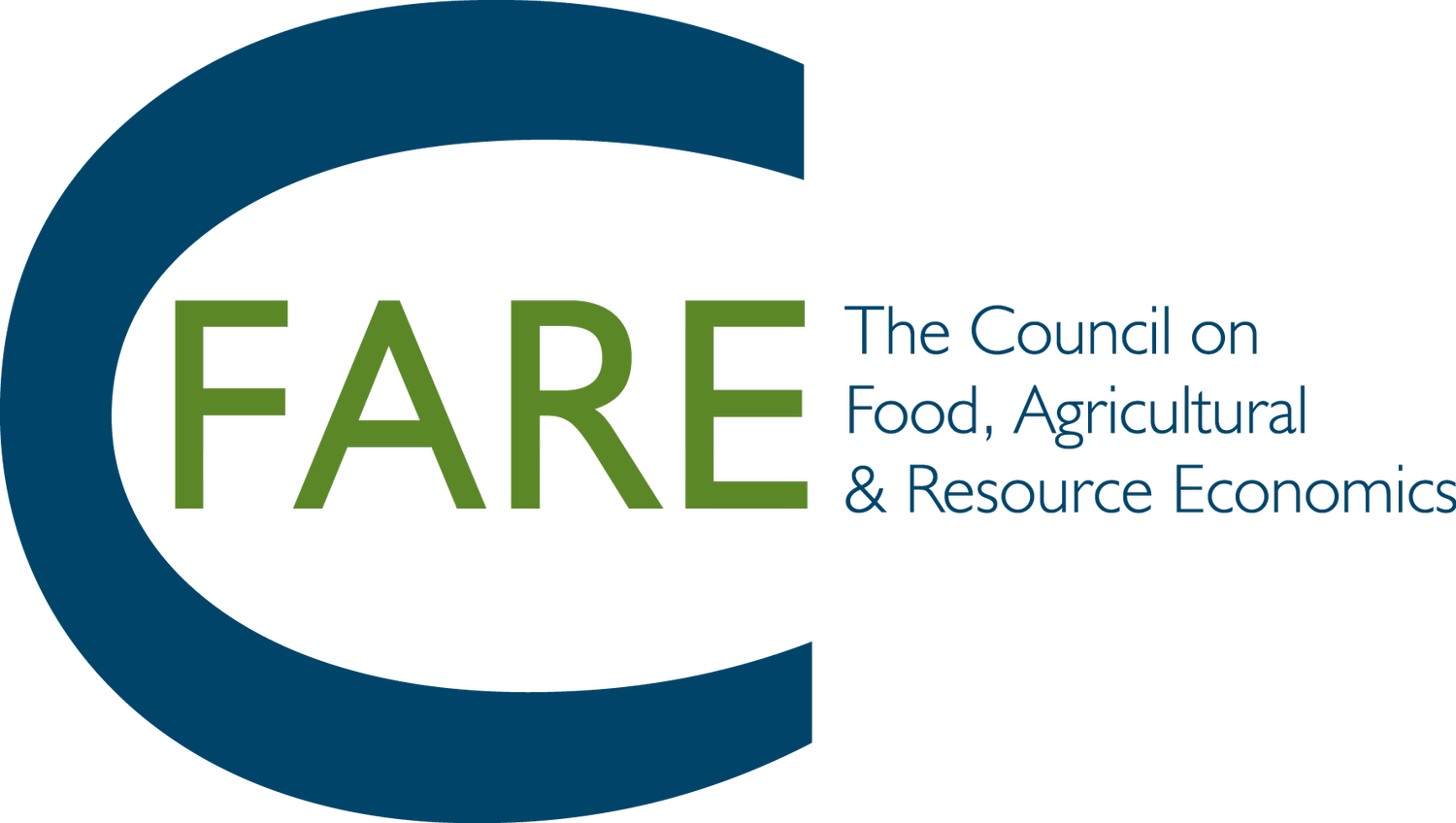Cultivating talent — Agriculture and applied economics at the nation’s 1890 universities
The 19 institutions established under the Second Morrill Act of 1890 comprise a group of historically black universities (HBCU’s) seeded with federal dollars in order to strengthen research, extension and education in food and agricultural sciences. Applied economics is an important discipline across both courses of study.
'Interdisciplinary Approach,' 'Communication' Top List of Tips Agricultural Economists, Policy Experts Share with Early Career Professionals
Take an interdisciplinary approach to agriculture, learn to communicate economics to an audience of non-economists, and follow your passion — these were just a few of the tips four leading Washington economists and agriculture policy mavens offered attendees of NextUp, the Council on Food, Agricultural and Resource Economics’ (C-FARE) summer early career development program.
NextUp — A career development panel for young professionals + students in agricultural and applied economics
The agricultural and applied economics profession is brimming with young talent preparing to lead the next wave of research projects, policy changes and innovation. In our ongoing effort to catalyze informed decision making, the Council on Food, Agricultural and Resource Economics (C-FARE) will host a professional development panel from 1 p.m. to 3:00 p.m. EDT July 22.
Local Food Markets, Labor + Metrics Panelists Answer Audience Questions
About 280 registered for C-FARE’s latest webinar, Local Food Markets, Farm Labor and Metrics in a Time of Covid-19, which is reviewed here with a link to the full broadcast on the council’s YouTube channel.
C-FARE WEBINAR June 26, 2020 — Local Food Markets, Farm Labor and Metrics in a Time of Covid-19
Covid-19 has devastated the economy, led to spiraling unemployment and increased food insecurity. How will this impact local food systems, and what changes are needed? Farmers markets have restructured to limit the spread of the virus but also witnessed demand spike.
C-FARE WEBINAR June 5, 2020 — How Resilient Is the U.S. Meat Supply Chain? Lessons from Covid-19
Despite a steep decline in meat processing and a 92% jump in the price of wholesale boxed beef earlier this spring, the U.S. livestock sector has demonstrated resilience and relative supply chain stability throughout the early months of the Covid-19 pandemic, three agricultural economists say.
C-FARE WEBINAR April 24, 2020 — E-Commerce During Covid-19: Opportunities for Food Producers to Make Direct Market Sales Online
More than 500 registered for a webinar hosted by the Council on Food, Agricultural and Resource Economics (C-FARE) and the Northeastern Agricultural and Resource Economics Association (NAREA) April 24, the most since the council began producing lunchtime webinars.
C-FARE Webinar Nov. 1, 2019 — Local Food Procurement: A Catalyst for Small Farm Economics
There is growing evidence that household and commercial buyers are willing to pay a premium for local products. Families shop at farmers markets, school districts stock locally grown provisions, and restaurants curate seasonal menus in part to support the vitality of local growers.
C-FARE Webinar Sept. 24, 2019 — A Growing Population: Hispanic Farmers in the Midwest
The nation’s farmland and farmers continue to decrease, but Hispanic farm operators are growing, according to the USDA’s National Agricultural Statistics Service (NASS) Census of Agriculture. Missing, however, are in-depth case studies that shed light on the diversity of livelihood strategies Hispanic farmers develop in the Midwest. As the nation’s agricultural industry continues to undergo demographic changes, it is critical that Hispanic farmers connect with the resources needed to be successful.
C-FARE Webinar Sept. 20, 2019 — Changes in the Multilateral Trading System: Impacts to U.S. Agriculture
The World Trade Organization (WTO) has been a very successful system for the governance of international trade, progressively lowering tariffs and stimulating trade growth. Despite the fact that the United States played a significant role in establishing the WTO, as well as historically driving multiple rounds of trade negotiations, its current trade policy will notably change the global agricultural trading system. Unilateral implementation of tariffs by the United States has resulted in extensive international retaliation by competitors.
C-FARE Webinar Sept. 9, 2019 — Current Trends in U.S. Farm Income, Volatility, and Farmland Values
Over the last decade, the agricultural economy has changed dramatically, with consecutive year-on-year declines in farm income despite strong crop and livestock yields.
C-FARE Webinar July 26, 2019 — Food Labeling and New Food Technology
The United States Congress passed Public Law 114-216 three years ago requiring the U.S. Department of Agriculture to establish a national disclosure standard for genetically engineered (GE) foods.












